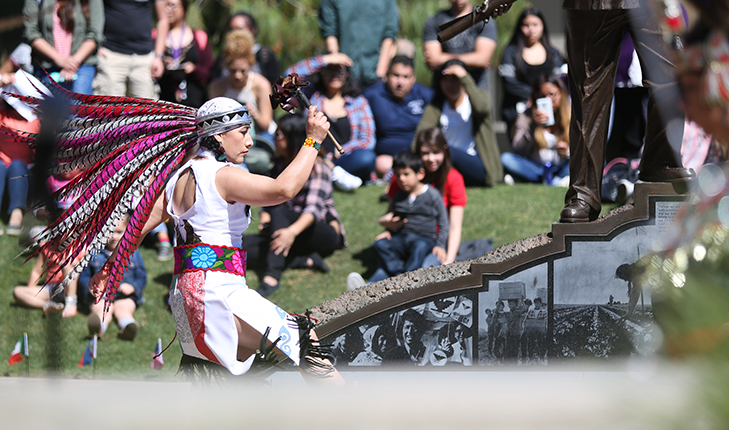Ethnic Studies at Fresno State grew out of a specific socio-historical moment of resistance. Fifty years ago, students, faculty and community members demanded a curriculum that reflected the lives of people of color and helped end educational, institutionalized racism.
“Students of color at Fresno State were harassed and abused for making these demands, so it’s important to understand that Ethnic Studies was established out of struggle, resistance and, quite literally, blood, sweat and tears,” said Dr. Cristina Herrera, professor and chair for the Department of Chicano and Latin American Studies.
Dr. Jenny Banh, an anthropology assistant professor, said, “Ethnic Studies was and is the only discipline that was created and supported by the community.”
The discipline of Ethnic Studies was born out of the 1968 San Francisco State student strikes that demanded relevant education to reflect the community in which the students came from. It is the study of diverse populations in the United States, including Latinx, Asian American, African American and Native peoples.
Herrera said the discipline teaches students about the unique struggles and contributions of people of color in shaping the U.S. In particular, the field examines these struggles through a critical lens that challenges, resists and examines white supremacist systems of power, she said.
In memory and celebration of 50 years of Ethnic Studies at Fresno State, faculty in Chicano and Latin American studies, Asian American studies, Africana studies, Native American studies and Jewish studies will host an event with panel discussions from 11 a.m. to 6 p.m. on Tuesday, Oct. 15, at the Henry Madden Library (Room 2206).
The first panel will feature original founders of Ethnic Studies, including Robert Mikell, Black studies; Franklin Ng, Asian American studies; Victor Salazar, graduate of La Raza studies, now known as the Chicano and Latin American Studies; and alumna Sylvia Savala.
The second panel will include current Ethnic Studies professors Cristina Herrera, Jill Fields, Jenny Banh, Davorn Sisavath, Leece Lee-Oliver and Takkara Brunson, who will speak about the state of the programs. The third panel will consist of African American high school students who will talk about the struggles they face trying to get an Ethnic Studies class established.
Herrera said the celebration is important for a number of reasons.
“First, until our educational curriculum critically, compassionately and equitably includes the histories and experiences of people of color, Ethnic Studies is necessary to challenge those exclusions and gaps,” Herrera said. “Secondly, well over half of the Fresno State student body consists of students of color. Students deserve to learn about their histories and communities in a way that empowers them.”





